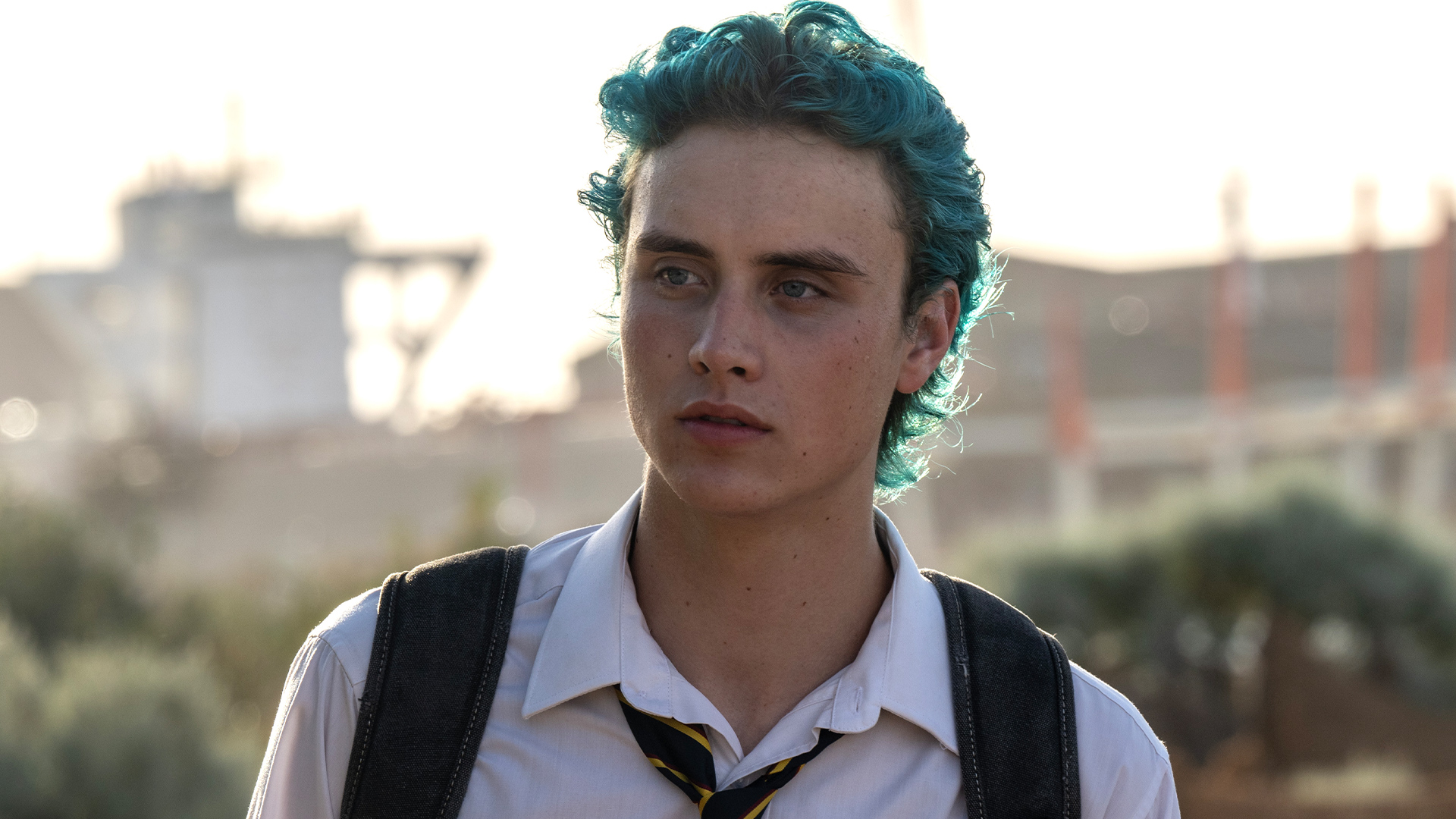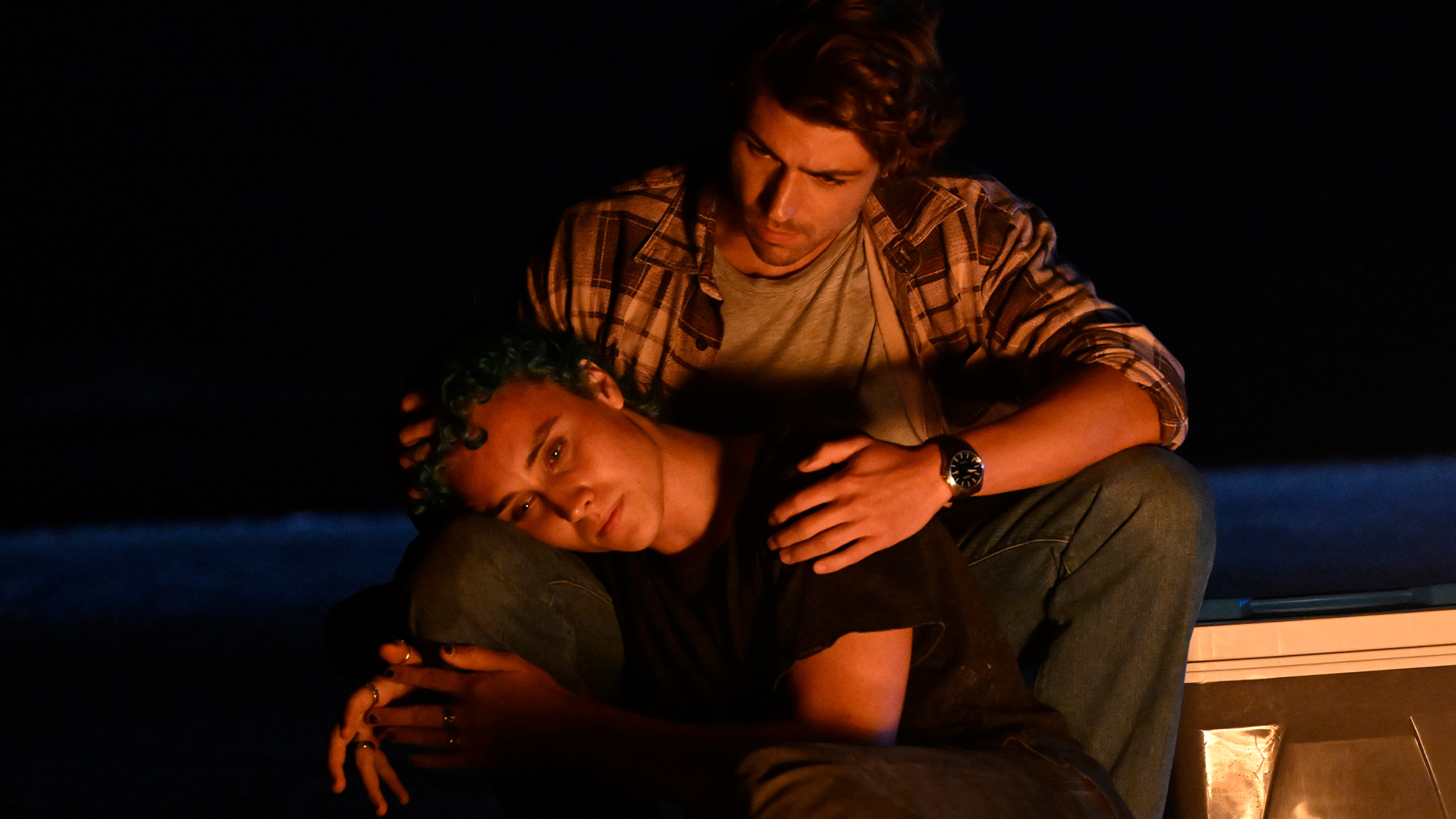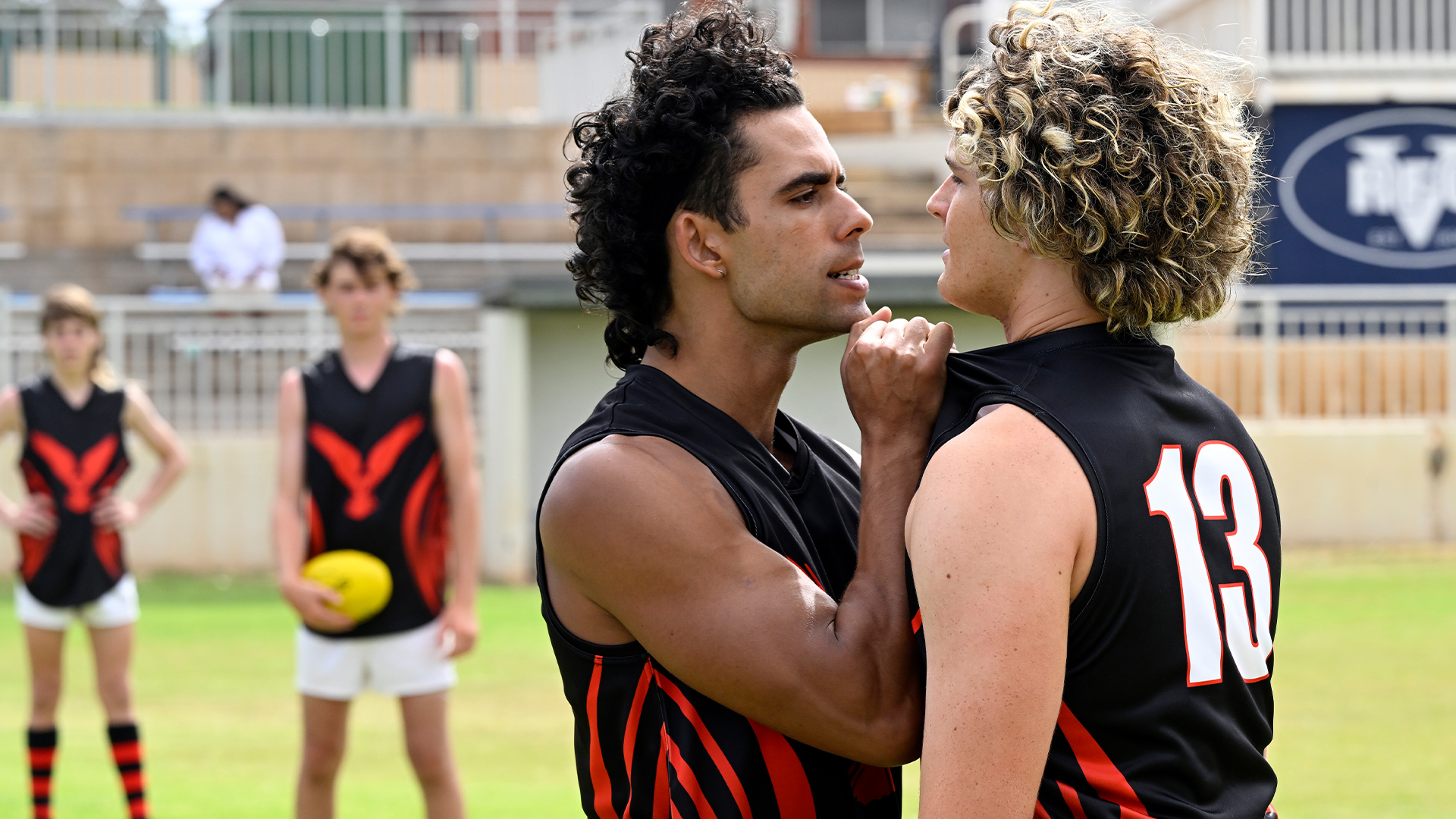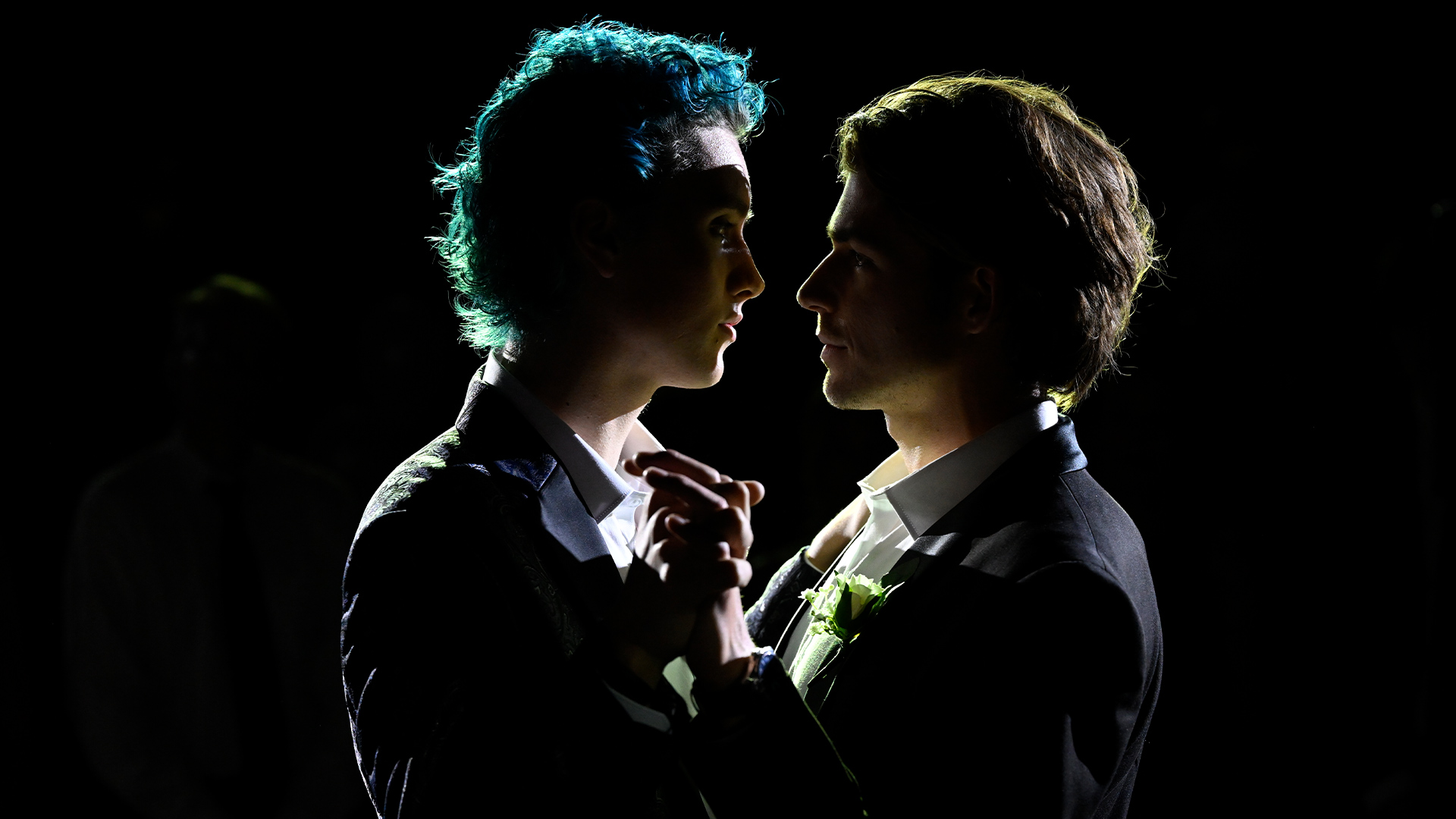Invisible Boys: A uniquely Aussie look at coming-of-age (and out of the closet)

With harder stuff than other coming-of-age queer series, new Australian series Invisible Boys really goes there, reports Eliza Janssen.
Back in 2017, Australians voted yes on a national plebiscite questioning same-sex couples’ right to marry. In my urban neck of the woods, where every coffee shop has a rainbow flag in its window, this vote seemed like a done deal—practically offensive in the obviousness of its answer. The situation in Geraldton, WA seems to have been a little different. That’s where this emotive new Stan Original series sets its scene, an industrial and claustrophobic environment where, in the words of hero Charlie (Joseph Zada), “the desert blows so hard, even the trees can’t grow straight.”
An emo kid with rockstar dreams, he resorts to a risky hookup app to express his sexuality… but it’s not a secret for too long, after a disastrous encounter with a married man forces him to out himself via a rebellious social media post. By the end of the pilot of Invisible Boys, we feel both fear and relief at Charlie’s budding relationship with another stranger, saved in his phone as Matt Sexy (Joe Klocek). Sure, he’s worryingly older than Charlie, and he’s a closeted farmboy who can’t take their relationship into the public world… but he listens to the same Nick Cave music as Charlie’s dear, departed dad.

It’s trouble with a capital T, and certainly some harder stuff than other coming-of-age queer series such as Netflix’s Heartstopper. Showing the warts-and-all process of nascent gay desire blossoming into painful reckonings with family and friends, Invisible Boys really goes there. Charlie’s reluctant confession singles him out as the only gay kid in “Gero”, but more broadly, the show knows that gay kids are not a monolith, and that two other closeted characters will have to face themselves sooner or later too.
One is Zeke (Aydan Calafiore), the good Italian boy: prepped to dux his class, doomed to be his parents’ second priority after their darling older, golden boy. It’s a shock to see the lovely Pia Miranda here as Zeke’s monstrous, controlling mother—one episode even sees the family mashing tomatoes for passata, in a nod to teen classic Looking For Alibrandi! Zeke’s double life, of being attracted to buff, unapproachable dudes online by night and managing his family’s bigotry each day, leads to a bunch of the show’s best OMG moments, such as when he accidentally hearts a shirtless pic that school bully Hammer (Zach Blampied) uploads to Insta.

Hammer, of course, is grappling with his own same-sex attraction, his thwarted fumblings with his picture-perfect girlfriend only exacerbating the massive pressures his doting mum exerts on him in his (*their [*her]) dream to be a top AFL draft pick. This is the kind of kid who’ll shout ‘GAYYY’ for an easy laugh from his mates when his class is watching Holding The Man—but below the surface, the blokey jock is anxiety all the way down, a redemptive gay romance in the series’ later episodes letting him unwind for the first time. Never before has The Presets’ This Boy’s In Love been wielded with such poignancy.
In fact, music is one of the most acute tools Invisible Boys has at its disposal, bringing us intimately close to each character’s internal life. Charlie reckons My Chemical Romance changed his life, and loudly rejects being “one of those Kylie gays”. Matt sheepishly admits that Shannon Noll was his first man-crush. Humour, where it surfaces in the often intense and bleak drama, is a welcome element, too. “If you’re gonna bail on me tonight, you’ll have to call me Gal Godot,” Charlie’s mate warns him: “‘cos I won’t know how to act.”

The opening episodes of the series are downhearted, letting us bask in the malaise and trapped feeling our trio of protagonists suffer through each day in their small and uncompromising town. But as the boys begin to connect and draw strength from each other, a lighter mood sets in, with room for joy and fun, musical moments. It’s a wise and dynamic move for the production that keeps us watching and hoping for the best, even as a few tragic turns lie in wait.
Some viewers may argue that Invisible Boys is too explicit or thematically heavy for the very demographic it depicts: scenes of sex and masturbation are frank and frequent, and Charlie, Zeke and Hammer each ricochet between exciting new flirtations and emotionally damaging encounters. But as a salve to the glossy, Euphoria model of TV teenhood, this series fits precariously between entertaining provocation and a safe space for alienated young viewers—and, perhaps most helpfully of all, their parents. Invisible Boys, as its title might suggest, isn’t interested in hiding or sanitising the truth, and viewers in towns like Geraldton—boys or otherwise—will be grateful for that.




















